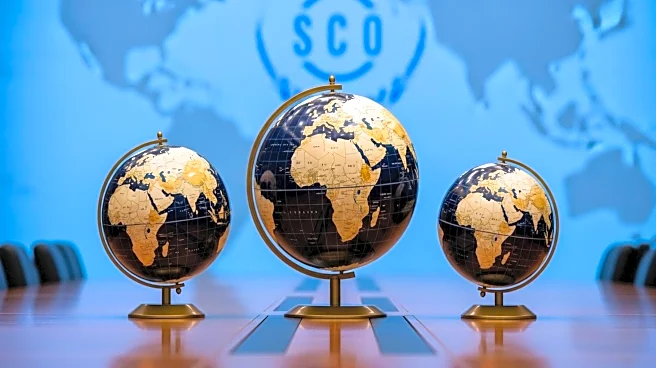What is the story about?
What's Happening?
President Xi Jinping is set to host over 20 world leaders at the Shanghai Cooperation Organisation (SCO) summit in Tianjin, China. The summit, scheduled for August 31 to September 1, will include Russian President Vladimir Putin and Indian Prime Minister Narendra Modi. The event is seen as a demonstration of solidarity among Global South countries, particularly against the backdrop of erratic U.S. policymaking. The SCO, originally a security-focused bloc, has expanded its remit to include economic and military cooperation. Despite the lack of substantive policy announcements expected, the summit is significant for its optics, showcasing a post-American-led international order.
Why It's Important?
The summit underscores China's strategic positioning in global geopolitics, particularly in fostering alliances with countries in the Global South. This move could potentially shift international relations dynamics, challenging U.S. influence. The inclusion of leaders like Putin and Modi highlights the bloc's appeal and the potential for increased cooperation among member states. The event also reflects China's efforts to counter U.S. policies and strengthen ties with countries facing similar geopolitical challenges.
What's Next?
Following the summit, further discussions on expansion and cooperation within the SCO are anticipated. The meeting between Xi and Modi may lead to incremental measures to ease border tensions and enhance trade relations. Putin's extended stay in China for a military parade suggests ongoing diplomatic engagements. The summit's outcomes could influence future geopolitical alignments and cooperation strategies among member states.
Beyond the Headlines
The summit's focus on optics rather than substantive policy changes raises questions about the effectiveness of such gatherings in addressing real-world issues. The emphasis on solidarity against the U.S. highlights the geopolitical tensions and the shifting balance of power. The event also reflects broader trends in international relations, where countries are increasingly seeking alternative alliances and partnerships.















